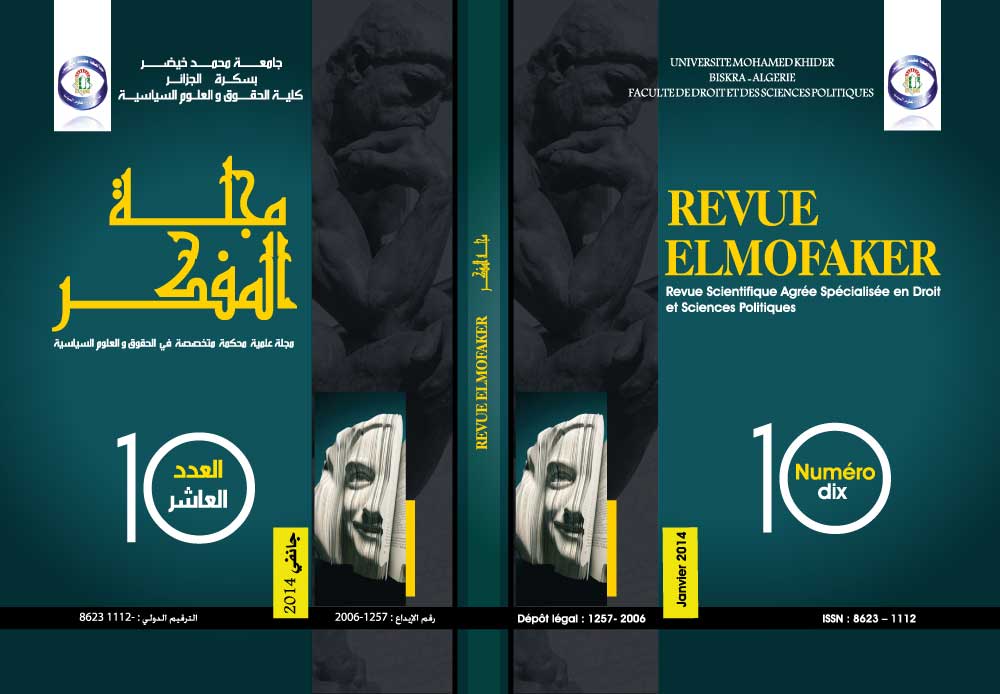قراءة تحليلية للنصوص القانونية المنظمة لحالتي الحصار والطوارئ، ومدى تأثيرهما على الحقوق والحريات في الجزائر
Résumé
This paper aims at exploring and analyzing the texts regulating the states of blockade and emergency and their impacts on "rights and public liberties" in Algeria. Of course, the exceptional conditions seem to be a common phenomenon for states; whether developed or/and underdeveloped. Thus, the seens of states defending their security and public order are similar. However, the Algerian case looks different from other cases, like France for example, in the sense that the Algerian constitution bestows more authorities to the "executive" in dealing with extraordinary circumstances compared to the French constitution. So; the study uses a comparative- analytical approach to examine the theory of "crisis" in depth and its application to Algeria with respect to authorities given to the executive and administrative branches.
These authorities are characterized by speediness and rigorism in procedures at the expense of impeding public liberties greatly and making judiciary and legislative guaranties hampered.
The conditions of emergency arise (e.g. existency of an imminent threat against the state or failure of traditional and primitive mechanisms in facing the challenges), the state can resort to extra- ordinary arrangements to contain or stop the threat.


